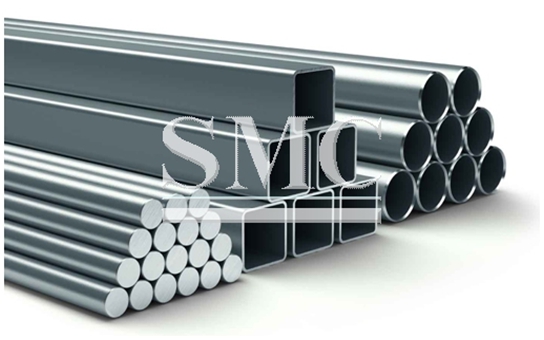
- Présentation de l'entreprise Le noyau de Shanghai Metal Vision & philosophie Partenariat Certificat Culture d'entreprise
- Nos services Conception et ingénierie Maintenance et entretien Fabricant & Fabrication Mise à jour et transformation Stockage et logistique Traitement et commerce
- Gestion d'entrepise Notre histoire Responsabilité globale
- Centre d'achat Stagiarie
- Produit métallique Produits en aluminium Produits en cuivre Produits revêtus métalliques Produits en acier inoxydable Produits en acier carboné Alliages spéciaux
- Construction & Projet Caillebotis en acier Étagère Structure en acier Pont en acier Système d'échafaudage Matériaux de construction Matériel Chimique One-Stop Solutions pour les Projects
- Conteneur Conteneur standard ISO Conteneur d'équipement Conteneur de stockage Maison conteneur Conteneur frigorifique / isolé Conteneur offshore
- Machine Machine à former des métaux Autres machines Machine à découper les métaux Machine de traitement des métaux Machine à cintrer Machine d'aggloméré
- Produits mécaniques Industrie automobile Divers Équipement d'amarrage Equipment marin Récipient à pression
- Système électromécanique Câble Automation Distribution d'énergie Système d'alimentation solaire Système de protection électrique Convertisseur Ligne de production Système d'éclairage
- Matériel médical Produits de nourriture Produits de voies aériennes Produits de soins infirmiers Produits d'injection
- Machines de construction
- projet epc
- Tuyaux de pétrole
- Tuyaux de l'eau
- Tuyau de gaz
- Bateau et accessoires d'amarrage
- Produit métallique pour la décoration
- Composant du transformateur
- Pipe d'échangeur de chaleur
- Pièces et accessoires de climatisation
- Chaudière
- Appareil de cuisine et de salle de bains
- Métal pour appareils ménagers
- Appareil solaire
- Ascenseur
- Toiture et plafond
- Câble
- Tank
- Emballage
- Pièces détachées et accessoires pour machines et équipements
- Moule
- Pièces d'automobile
- Rail et rail de grue
- Équipement de quincaillerie
- abrasif
- Construction de route
- Composants electroniques
- Matériaux de construction et de décoration
- Portes et fenêtres
- Réfrigérateurs
- News release Nouvelles de l'industrie métallurgique Nouvelles de la machinerie et de l'équipement Nouvelles de la construction et du bâtiment Nouvelles des produits mécaniques Nouvelles de conteneurs Nouvelles du système électrique Nouvelles des matériels médicaux
- Médiathèque Vidéo Image Suivez Shanghai Metal sur les médias sociaux
Is global finger pointing over steel altering supply patterns?
The United States and the European Union have said enough is enough have begun the fight back against under-cost dumping of steel onto their respective markets, whilst laying the blame at the feet of China. China have made monumental progress in the last two decades in terms of their market share of the steel market, since 1995 to last year, their share of the world’s crude steel production has increased by 36.8PC from 12.7% to 49.5%.
The United States has moved to impose anti-dumping penalties and countervailing duties that would be as high as 532 percent for some Chinese products, such as cold-rolled steel used in production of autos, appliances, and other products.
Both the EU and the US have also imposed penalties on other nations such as Russia, Turkey, South Korea, Japan and India, however, the penalties vary by country. The effects of the penalties will no doubt be felt in the respective countries, however, will it be as effective as the EU and US are hoping?
“It’s a game of whack-a-mole,” he said. “They hit China, and people buy from Korea. They hit Korea, and then people buy from Indonesia or Taiwan. People find a way around these obstacles, but it does require redrawing of a supply chain.” said John Anton, director of steel analytics at IHS Markit.
John believes that US and EU steelmakers who believe by inflicting these penalties it will automatically cure their woes are likely to be disappointed, with the understanding that people will always find a way around things and look for the cheapest and most efficient source.

As the world’s largest steel producer and exporter, China is the main cause of overproduction. “Production in the rest of the world is not out of hand, but China produces half the steel in the world, Anton said.
In 2014, China responded to their national slow down in domestic growth by increasing their steel exports to an all time high of 130MT, which is a world away from their operations a number of years back where they didn’t want to exceed 50MT due to a fear of annoying the US and Europe. Therefore, it is no surprise that by increasing their output levels by 160%, they have indeed annoyed the US and EU.
Although, China has indeed acknowledged they have a part to play and have begun cutting production levels, overproduction is still an incredibly prevalent problem. There is no doubt overproduction of steel is a critical issue in the industry at this current point, however, finding the absolute root cause of the problem could be a mystery to find and agree upon; with the West pointing the finger East and the East pointing their finger West.